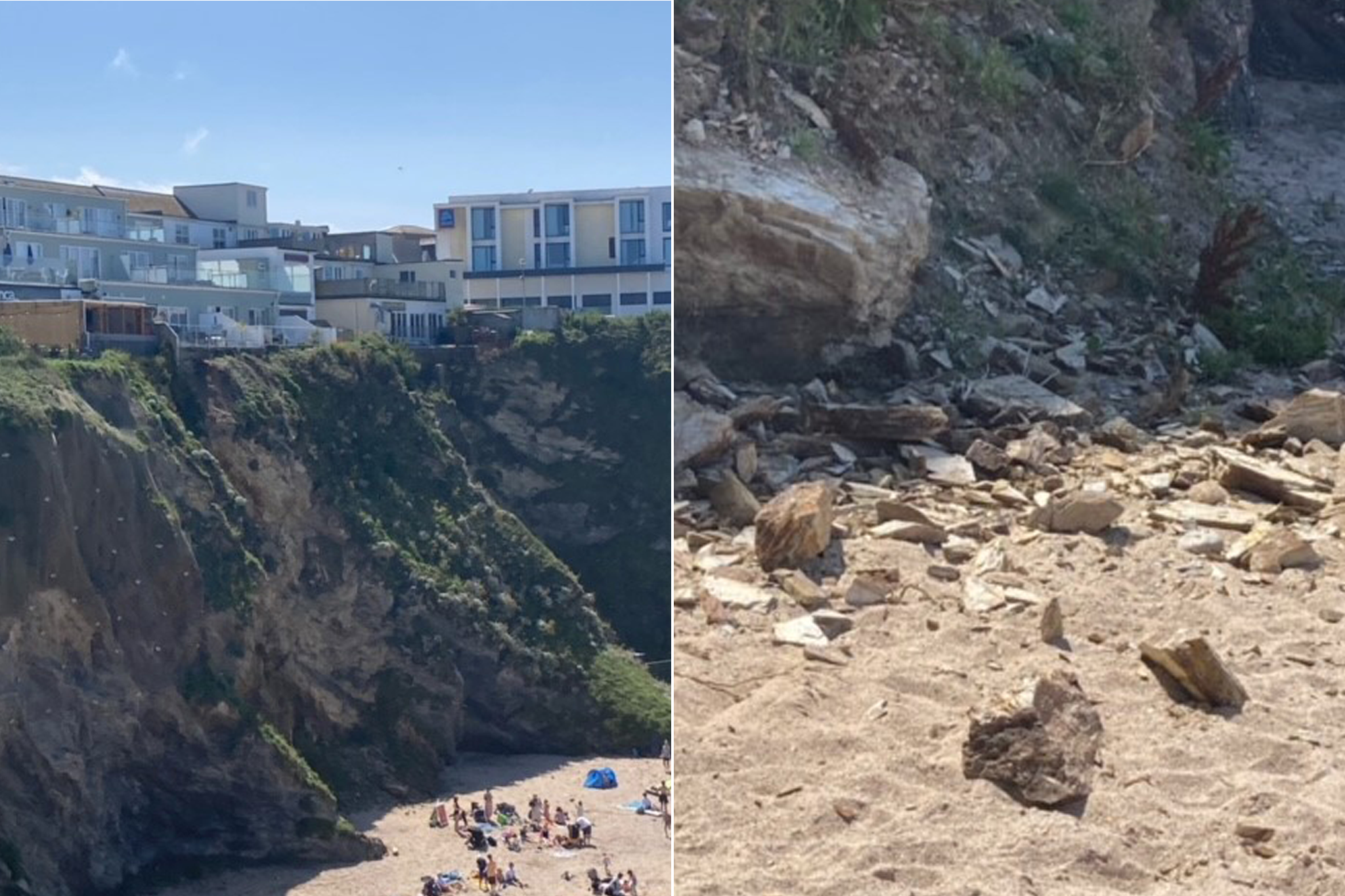Cornwall cliff collapse closes part of Newquay beach ahead of hottest day of the year
Beachgoers are still spending time on the shore just metres from the fallen debris

A section of a popular Newquay beach is closed after a cliff in Cornwall collapsed onto the busy beach below.
Cornwall Council have cordoned off a section of Great Western Beach in Newquay from public use following the cliff fall over the weekend.
Today (29 July) is forecast to be one of the hottest days of the year so far, with highs expected to hit 32C in London on Tuesday, and Cornish beaches are packed with summer holidaymakers despite the hazard.
Pictures show rocks scattered at the base of the cliff just meters from families set up on the sand with towels, tents and windbreakers.
Great Western Beach is a beach complex of cafes, pizza vans and surf shacks in front of Newquay railway station.
No beachgoers were injured by the falling rocks, according to reports.
Cornwall Council wrote on Twitter/X: “A cordon remains in place on a section of Great Western Beach, Newquay, following a cliff fall over the weekend.
“We’re monitoring the site and working with partners to ensure the area remains safe.
“Stay well away from the safety barrier we’ve put in place.”
It’s not the only stretch of UK coastline suffering from the effects of erosion.
A Suffolk beach considered one of the UK’s best could be lost to the North Sea in as little as 16 years.
Covehithe Beach in the Benacre National Nature Reserve has faced significant erosion over the last few decades.
According to the area’s Shoreline Management Plan (SMP), Covehithe’s cliffs are eroding at a rate of 4.5 metres a year – one of the highest rates in the country.
Geological evaluations estimated that 500 metres of cliffside were lost to the sea between the 1830s and 2001, and experts have now warned that the shore could disappear entirely by 2040.
For more travel news and advice, listen to Simon Calder’s podcast.
Join our commenting forum
Join thought-provoking conversations, follow other Independent readers and see their replies
Comments
Bookmark popover
Removed from bookmarks